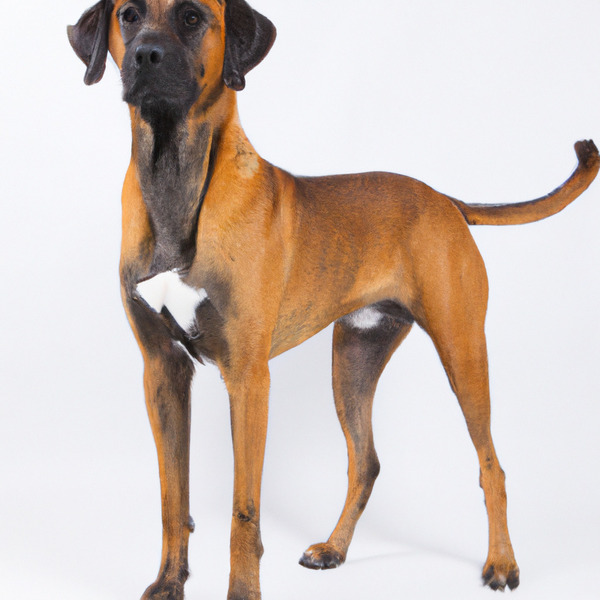Brug
also known as Griffon Pug

Breed Information
Is Brug a purebred?
Cross Breed
What were Brugs originally used for?
Companion, watchdog
How Long Do Brugs Live? What is average life expectancy for a Brug? How long can Brugs live?
12-15 years
The average Brug lifespan is somewhere between 12-15 years, provided they aren't beset by any exceptional health issues or injuries.
Brug Height & Weight
How big is a full grown Brug?

| Height | ||||
|---|---|---|---|---|
| Average | 6 months | 12 months | 18 months | |
| Male | 9-13 inches (22.9 - 33 cm) | 6.0 inches (15.2 cm) | 9.5 inches (24.1 cm) | 9.5 inches (24.1 cm) |
| Female | 8-11 inches (20.3 - 27.9 cm) | 6.0 inches (15.2 cm) | 9.5 inches (24.1 cm) | 9.5 inches (24.1 cm) |
| Weight | ||||
|---|---|---|---|---|
| Average | 6 months | 12 months | 18 months | |
| Male | 10-15 pounds (5 - 7 kg) | 10.0 pounds (5 kg) | 17.0 pounds (8 kg) | 21.0 pounds (10 kg) |
| Female | 8-13 pounds (4 - 6 kg) | 10.0 pounds (5 kg) | 17.0 pounds (8 kg) | 21.0 pounds (10 kg) |
Are Brugs Hypoallergenic?
No
Unfortunately, the Brug is not hypoallergenic, making it not a good choice for a dog lover who suffers from pet allergies.
What is a Brug personality? What are Brug dogs best known for?
Playful
Alert
Sensitive
Courageous
Intelligent
Friendly
Affectionate
Loyal
Gentle
Going
Inquisitive
Selfish
Watchful
Companionable
Cheerful
Are Brugs heavy shedders? How Much Does a Brug Shed?
![]()
![]()
![]()
![]()
![]()
Brug dogs are not heavy shedders, but they will lose a significant amount of hair each year. To decrease the amount of shedding, you can regularly brush your Brug. This will remove loose hair and keep his coat growing in the same direction.
What is the watchdog ability of a Brug dog?
![]()
![]()
![]()
![]()
![]()
The Brug breed is one of the worst choice if you want a good watchdog.
Breed History
Where do Brugs come from?
United States
What are Brugs descended from?
Brussels Griffon and Pug
What organizations or kennel clubs recognize/register the Brug breed?
ACHC = American Canine Hybrid Club
DBR = Designer Breed Registry
DDKC = Designer Dogs Kennel Club
DRA = Dog Registry of America, Inc.
IDCR = International Designer Canine Registry®
When were Brugs first bred? How old is the Brug breed?
Unknown

Brug Appearance
What color are Brug eyes?
Brown
What color can Brug nose be naturally?
Black
What color can Brug coat be naturally?
Cream
White
Brown
Black
How long is a Brugs coat?
![]()
![]()
![]()
![]()
![]()
The coat of a Brug dog ranges in length from short to medium.
How Dense Is The Brug Coat?
![]()
![]()
![]()
![]()
![]()
What is the texture of the hair of a Brug?
Straight
How many puppies can a Brug have in a litter? How many puppies can a Brug have in her first litter?
2-4 puppies per pregnancy
A Brug can have a litter of 2-4 puppies on average. However, it's worth noting that the size of the litters can vary greatly. Factors that can influence litter size include the health of the mother, breeding history, and genetics.
![]()
![]()
![]()
![]()
![]()
Brugs are known for their adaptability and versatility, they are capable of adapting well to a wide range of lifestyle changes and living environments. They are a highly adaptable breed, and make great companions for families and individuals of all lifestyles.

Brug Health Issues
Do Brugs have a lot of health problems?
![]()
![]()
![]()
![]()
![]()
The Brug breed is commonly healthy with low vet costs, regular check-ups may not be as necessary but it's important to keep an eye on their health and have them checked by a veterinarian when needed.
What are the major health concerns to be aware of when owning a Brug?
Patellar Luxation
Hip Dysplasia
What are the less significant issues to keep in mind when it comes to Brugs?
Entropion
Skin Allergies
Legg-Calve-Perthes Disease
Progressive Retinal Atrophy (PRA)
PDE (Pug Dog Encephalitis)
What are the occasional tests recommended for Brug breed?
X-Rays
Allergy Tests
CT or MRI scan
Full Physical Examination
Optical Examination for PRA
Full Blood Profile
Skin Biopsy

Brug Needs and Activities
Do Brugs have a lot of energy?
![]()
![]()
![]()
![]()
![]()
Brugs may be a good breed for those who prefer a more relaxed lifestyle. They tend to have a lower energy level than other breeds of dogs.
Do Brugs need socialization? How social are Brugs?
![]()
![]()
![]()
![]()
![]()
Brug have very high social needs. These needs include regular mental and physical stimulation, a job or purpose, and companionship. They thrive in environments where they have a lot of interaction with humans and other dogs.
How much exercise should Brugs get?
![]()
![]()
![]()
![]()
![]()
The Brug dog requires a moderate amount of physical activity to maintain a healthy lifestyle. These breeds are ideal for people who have a moderate amount of time to devote to their pet and enjoy regular physical activity themselves. They also make great family pets as they have the energy to keep up with children and the temperament to be great companions.
How much sleep should a Brug have? Do Brugs sleep a lot?
![]()
![]()
![]()
![]()
![]()
The Brug breed is known for their relaxed and calm nature and tendency to sleep for long periods of time.
How much does it bark?
![]()
![]()
![]()
![]()
![]()
The Brug is a vocal breed, with a tendency to bark and howl frequently. They may not be the best fit for those seeking a quiet companion. Their barks can vary and can indicate different emotions and needs.
Are Brugs mouthy?
![]()
![]()
![]()
![]()
![]()
What is the likelihood of a Brug running away? Do they have a tendency to explore or wander frequently?
![]()
![]()
![]()
![]()
![]()
Do Brug dogs have a high prey drive?
![]()
![]()
![]()
![]()
![]()
What do Brugs enjoy doing? How do I keep my Brug busy?
Play, Dog Parks, Catch treats, High Five, Bath time, Snuggling, Fetch, Walk, Swim, Tug-of-war, Cuddles
What is the energy level of a Brug? How much energy does a Brug have?
High
Brugs are high-energy dogs. They need mental as well as physical exercise. These dogs require a lot of your involvement and without it they can, and will, become problematic dogs.
![]()
![]()
![]()
![]()
![]()
How far should a Brug walk each week? How many miles should a Brug walk every week?
7 miles / week
There's really no limit to how far you walk your dog as long as they're comfortable. For Brug, it's at least 7 miles / week. Just remember to build distance and stamina gradually over time.
How much a Brug should exercise a day? How much activity does a Brug need?
60 minutes
In general most Brugs usually need at least 60 minutes of exercise daily. This can be spread across the day and include all sorts of high-energy activities, like walking, running and playing.
What level of grooming should be provided for a Brug?
![]()
![]()
![]()
![]()
![]()
The Brug is a breed of dog that requires an average amount of grooming effort.
How often should you brush a Brug?
Weekly
Brug should be brushed at least once a week. Of course you can give them more frequent brushes if you find that they are still shedding a lot
What are the most commonly used brushing tools for Brugs?
Slicker Brush
Comb
Nail Clipper
Costs
How many cups of food does a Brug eat?
1 cups
For an average 10-15 pound (5 - 7 kg) Brug feed 1 cups daily. But, keep in mind, the amount you feed is going to be dependent on the quality of the food you are feeding.
How Much Does a Brug Cost Daily?
$1.10 - $1.40 / day
The average cost of a Brug is somewhere $1.10 - $1.40 per day.
How Much Does a Brug Cost Per Month?
$35 - $42 / month
The average per month expenses of a Brug is between $35 - $42. This makes an average of $420 - $504 per year. It will be on the higher side when the dog is still small because it will need more frequent visits to the vet, shots.
Brug Characteristic
How intelligent is a Brug?
![]()
![]()
![]()
![]()
![]()
The Brug have below the average degree of obedience intelligence among other breeds. However, calling them “dumb dogs” is unfair. Where Brugs lack in obedience & working intelligence, they make up for it with their keen ability to understand human emotions.
How sensitive is a Brug dog?
![]()
![]()
![]()
![]()
![]()
This dog breed is more sensitive than others and easily overwhelmed by new surroundings and people. They need gentle handling and a calm, stable home environment with positive reinforcement training.
Are Brug dogs affectionate?
![]()
![]()
![]()
![]()
![]()
Do Brug do well in apartments? Are Brugs good indoor dogs?
![]()
![]()
![]()
![]()
![]()
Brugs are known for being excellent apartment dogs. They are fairly active indoors and will do okay without a yard.
Are Brugs good with kids? Are Brugs good around children?
![]()
![]()
![]()
![]()
![]()
Brugs are average friendly dogs towards children.
Are Brugs good for elderly?
![]()
![]()
![]()
![]()
![]()
Are Brugs good with cats? How friendly Brugs are toward cats?
![]()
![]()
![]()
![]()
![]()
Brugs are very cat friendly dogs. They generally make good companions for cats.
Do Brug dogs get along with other dogs? Are Brugs OK with other dogs?
![]()
![]()
![]()
![]()
![]()
Brugs are friendly, active and loyal companions. They generally love to be around other dogs, making them a good family pet for some,
How do Brug dogs interact with other pets? Are they considered pet-friendly?
![]()
![]()
![]()
![]()
![]()
Are Brugs friendly with strangers?
![]()
![]()
![]()
![]()
![]()
Brugs are friendly dogs and won't commonly bark at strangers. However, if you wish to change this, training them is easy. With their intelligence, teaching this breed to do anything is pretty simple.
Do Brugs like to play? Are Brugs playful?
![]()
![]()
![]()
![]()
![]()
Brugs have an average level of playfulness. The Brugs, like other dogs, like to play. But they are not the most playful dog breed.
Are Brug easily trained?
![]()
![]()
![]()
![]()
![]()
Brug may require more time, repetition and patience to learn commands than other breeds, and can be challenging to teach new things, but with patience and consistency, they can be trained.
 Pros & Cons
Pros & Cons
Pros
- Cute and small
Brugs are small dogs with a cute and fluffy appearance, which can be a pro for those who want a small companion. - Intelligent
Both Pugs and Bichon Frises are known for their intelligence, so Brugs may inherit this trait. - Loyal
Brugs are known to be loyal to their owners and can make great family pets. - Good with children
Brugs are generally good with children and can be patient and gentle with younger kids. - Low maintenance
Brugs have a short, fluffy coat that requires minimal grooming.
Cons
- Barking
Brugs are known to bark when they sense something is wrong, which can be a con for those who live in an apartment or have close neighbors. - Health issues
Like all breeds, Brugs may be prone to certain health issues such as Patellar Luxation, Hip Dysplasia, Entropion, Skin Allergies, Legg-Calve-Perthes Disease and Progressive Retinal Atrophy (PRA), and skin allergies. - Early socialization
As with any breed, it is important to socialize Brug puppies early to prevent them from becoming anxious or aggressive around unfamiliar people and animals. - Not Hypoallergenic
Brugs may not be suitable for those with allergies due to their potential to cause allergic reactions. - Exercise
Brugs are energetic and need a lot of physical activity to stay happy and healthy. This may not be suitable for people who do not have the time or energy to exercise their dog regularly. - Expensive
Brugs may be more expensive to purchase than some other breeds due to their popularity.